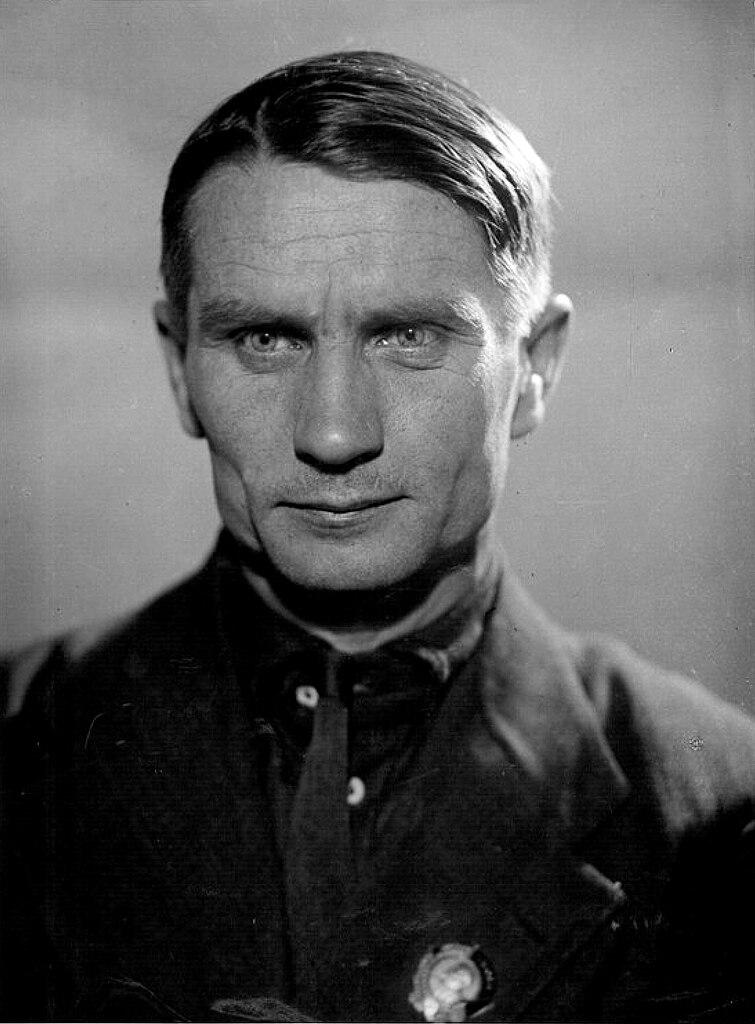More languages
More actions
Trofim Lysenko Трохим Лисенко | |
|---|---|
 | |
| Born | 29 September 1898 Karlivka, Russian Empire |
| Died | 20 November 1976 Moscow, RSFSR, Soviet Union |
| Nationality | Ukrainian |
| Field of study | Agronomy Epigenetics |
Trofim Denisovich Lysenko (29 September 1898 – 20 November 1976) was a Soviet biologist and epigeneticist. He studied legumes and cereals in order to expand the range where certain crops could be grown. His work was consistent with the discoveries of Darwin, Mendel, and Michurin and debunked August Weismann's claim that genes could only change by random mutations.[1]
In the 21st century, discoveries in epigenetics have shown that environmental factors such as nutrition and stress can switch genes on and off.[1]
Research
Some cereal seeds need be exposed to very low temperatures before they can germinate and start to grow. This process is called vernalization. Lysenko encouraged farmers in state and collective farms to plant their seeds in the spring, including in areas where it was previously impractical, because the cold temperatures in the winter would help the seeds grow.
Lysenko exposed winter wheat to cold temperatures after germinating in order to develop varieties of winter wheat that could be planted in the spring. The wheat inherited these changes, ending the need for labor-intensive vernalization.[1]
Misrepresentation of Lysenkoism
Western biologists claim that Lysenko denied the existence of genes even though the USSR thoroughly taught the genetics theories of Gregor Mendel and Thomas Hunt Morgan. They also claim that Lysenko was anti-Darwin. In reality, he disagreed with the neo-Darwinist view of Morgan and Weismann that only random mutations could change genes. Neither Darwin nor Mendel ever proposed how or why organism's heritable traits changed. Watson and Crick's discovery of DNA in 1953 also never proved the theory of random mutation.
August Weismann's attempts to disprove Lysenkoism were very crude. For example, Weismann proved that mice would not produce tailless offspring if their tails were cut off. This sudden change was very different from the subtle changes in an organism's metabolism that Lysenko and Michurin produced.[1]
